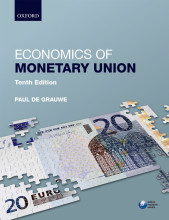Unemployment Insurance, Disability Insurance, and Workers' Compensation
9 important questions on Unemployment Insurance, Disability Insurance, and Workers' Compensation
Appropriate time pattern of unemployment insurance balances three factors. Which ones?
Consumption smoothing: increases with length
Benefit targeting: increases with length
This graph shows Meyer's study (1989) how an increase in benefits affected unemployment durations. How did it?
Do longer durations represent an undesirable outcome? Give two different arguments, one using 'job match quality''. What do empirics say?
No: if UI is helping people find higher quality job matches
job match quality: the marginal product associated with the match of a particular worker with a particular job
empirics: wages do not increase with UI generosity, suggesting UI does not improve match quality
- Higher grades + faster learning
- Never study anything twice
- 100% sure, 100% understanding
Krueger (1990) studied a benefit increase in MN:
- the response of injury durations to benefits increases is much stronger for hart-to-verify injuries than for easier-to-verify injuries
- 'Monday sprain and strains'
What are general findings on DI, WC and UI?
Benefits should be highest for DI, lowest for WC, with UI in the middle
> but WC is most generous
2. targeting
Target UI benefits toward those who have been permanently laid off
& pay higher benefits to those with less ambiguous disabilities
How would moral hazard be minimized in UI?
A UI payroll tax of 4% invested in such accounts could cover the costs of unemployment spells for virtually all workers.
What is another possibility to reform UI?
1. self-insurance for unemployment. Savings, with government loans. Loan forgiveness for low-wage/long-term unemployed
2. wage insurance. If you take a lower-paying job, you get a transfer equal to 25% of the wage cut
3. Net result: lower moral hazard, redistribution to both low-wage workers and to workers suffering a large wage loss.
The duration of an insurance should balance three factors. Which ones?
Targeting (the longer the better)
Moral hazard (the shorter the better)
Why is there no perfect consumption smoothing in UI?
2) spouses are less likely to work
The question on the page originate from the summary of the following study material:
- A unique study and practice tool
- Never study anything twice again
- Get the grades you hope for
- 100% sure, 100% understanding
































